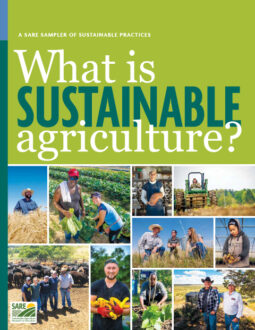Keeping an eye out for new technologies or business opportunities is one way farmers can make their operation more sustainable and adaptable to change. Precision agriculture is a prime example, and others include alternative energy systems, roller crimpers, interseeders and the countless low-cost tools small-scale farmers build to improve efficiency. On the business side, many farmers diversify into new marketing channels, niche products, heirloom or ethnic crops, value-added processing and unique or emerging production systems, such as agroforestry.
The Economics of Sustainable Agriculture
“The Economics of Sustainable Agriculture,” the eighth episode in SARE’s “What is Sustainable Agriculture?” animation series describes how practices such as crop rotation and reduced tillage can improve an operation’s bottom line sustainably. This simple animation outlines basic ecological practices that form the economic foundation of resilient farm systems and is intended to complement more detailed training materials.
Sampler of Projects
Improving No-Till Cover Crop Systems with a Precision Planter
SARE project FNC15-1018
Illinois farmer Ralph “Junior” Upton has decades of experience with cover crops and no-till under his belt, but like most farmers who prioritize sustainability, he’s still looking for ways to improve his system. Using a SARE Farmer/Rancher grant, he set out to tackle a problem that many no-till farmers face when adopting cover crops: how to maximize cover crop biomass in order to get the most benefit from the practice while also being able to plant effectively into the residue in the spring. His approach was to build a customized precision planter that could seed different species of cover crops in specific parts of his field rows. The idea was to seed species within the rows that are easier to manage during spring planting and to seed higher biomass, more difficult species, between the rows. While Upton and his collaborators saw some alignment issues, they felt the addition of an auto-steer system would improve efficiency.
Growing Rice in Upstate New York Using Traditional African Practices
SARE project FNE19-933
One might think that trying to grow rice, a tropical grain, in Upstate New York is an impossible task, but Nfamara Badjie and Dawn Hoyte are making it happen at Ever-Growing Family Farm. They’ve found a way around the short growing season by bringing practices used by farmers in Badjie’s native country of Gambia to their New York farm, located in Ulster Park. In particular, they used a SARE Farmer grant to compare two approaches to establishing seedlings: the established plug-tray method and the Diola-style field nursery. This is a centuries-old method used by the Diola (or Jola) people of West Africa, in which field nurseries are constructed as raised beds next to rice paddies. Badjie and Hoyte included in the study an heirloom rice from Africa known as Ceenowa. They found that the Diola method was successful; it resulted in more robust seedlings, reduced transplanting labor and allowed them to shorten the production cycle. It’s also simpler, lower cost and easy to adopt compared to the established approach.
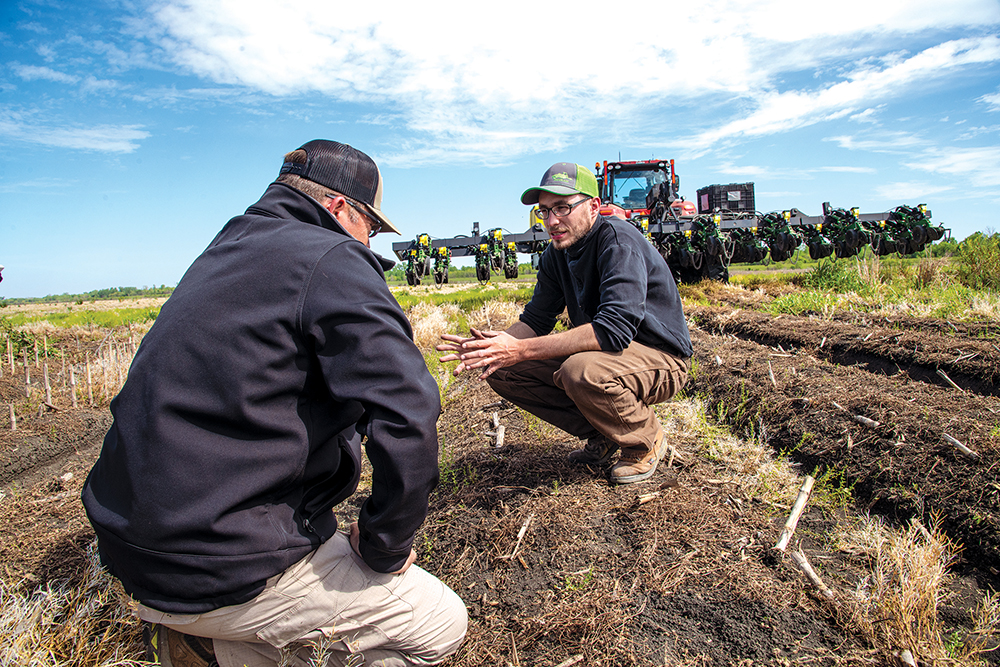
Using Drones to Collect Data that Leads to Reduced Nitrogen Applications
SARE project FS20-321
New technology is constantly being developed and adopted in agriculture, and one area with huge growth potential is the use of drones. Unmanned aerial vehicles (UAVs) can serve many purposes on a farm, such as crop and field monitoring. Nolan Parker, a UAV flight technician, wanted to see if drones could be used to improve the sustainability of corn and cotton farms by helping farmers reduce their use of nitrogen without affecting yields. Using a SARE Farmer/Rancher grant, he set out to test the ability of different drone models to collect imagery data and to see if he could use it to reduce nitrogen applications early in the season. Conducting his research at his family’s farm in Lake Providence, La., Parker assessed the efficiency of two styles of drone: quad-copter and fixed-wing. He found that fixed-wing drones fly faster and cover more acreage, and that the quality of data collected by each is comparable. Furthermore, the data he collected did allow for more precise nitrogen applications.
Growing a Cooperative to Meet Strong Local Demand for Pork
SARE project FW19-339
In Hawai’i, pork is an important part of the cuisine and culture for Native Hawaiian, Filipino, Portuguese, Tongan and Samoan communities. At the same time, small-scale pig farmers in the state can have a difficult time meeting local demand and providing a consistent supply of pork products. This prompted farmer Atto Assi to use a SARE Farmer/Rancher grant to develop a cooperative that would help its members better serve local markets through economies of scale. Through the project, the Hawai‘i Swine Producers Cooperative held workshops on the inoculated deep litter system that its members use: a low-cost system for raising pigs that produces minimal odor and has a low environmental impact. The co-op also used the workshops to grow their membership. The co-op removes barriers to entry for small-scale pork producers by buying their piglets and raising them to market weight, then returning the sales revenue back to them minus feed and labor costs.
Farm Business Management Resources
Information for farmers, ranchers, educators and researchers on the economics of sustainable agriculture and farm business management.
Stories from the Field
Here are some of the ways SARE grantees improve farm economics.

Third-Generation Dairy Thrives in New Kansas City Markets
Missouri farmer Janet Smith used a SARE grant to determine which strategy gave a better return for her goat dairy products, a presence at the farmers' market or at local retail outlets.

Improving Nutrient Use Efficiency in Montana Wheat
"This was a landmark study because we knew we were losing nitrogen, we just didn't know how we were losing it," says farmer Curtis Hershberger. When nitrogen fertilizers are applied to the soil surface using certain application practices, a significant amount can be lost when the nitrogen converts to ammonia gas and enters the atmosphere. […]

Oregon Farmers Grow Winter Squash to Expand Off-Season Sales
" "I no longer lose money on squash. I have a winter CSA so I need profitable winter crops; squash is now a profitable winter storage crop." Laura Masterson, Oregon farmer " THE CHALLENGE Farmers in the Willamette Valley of Oregon with smaller, diversified operations and local markets are increasingly on the lookout for crops…
Resources and Learning
Browse all of SARE's resources on farm business management. Examples include:
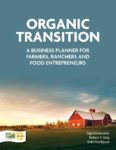
Organic Transition
The profit potential of transitioning to organic production—along with other rewards—has farmers, ranchers and food business owners across the country considering the switch. But successfully managing your business through the multi-year transition process requires careful planning. Use Organic Transition: A Business Planner for Farmers, Ranchers and Food Entrepreneurs to develop an actionable business transition plan that is suitable for yourself, your management team or a lender.
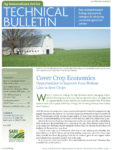
Cover Crop Economics
Cover crops can build soil health, control weeds, conserve moisture, provide grazing opportunities and more. But when do they start to pay for themselves? This analysis looks at the economics behind different management scenarios to determine if cover crops are likely to improve profitability in one, three or five years of use in corn and soybean rotations.
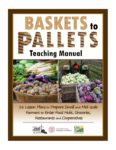
Baskets to Pallets Teaching Manual
The Baskets to Pallets Teaching Manual was written by Violet Stone, New York state SARE coordinator, as part of a state-based professional development program aimed at addressing the gap of tools to support farmers as they decide if, when and how to sell to a wholesale market. The Manual contains lessons plans and teaching resources that educators […]
